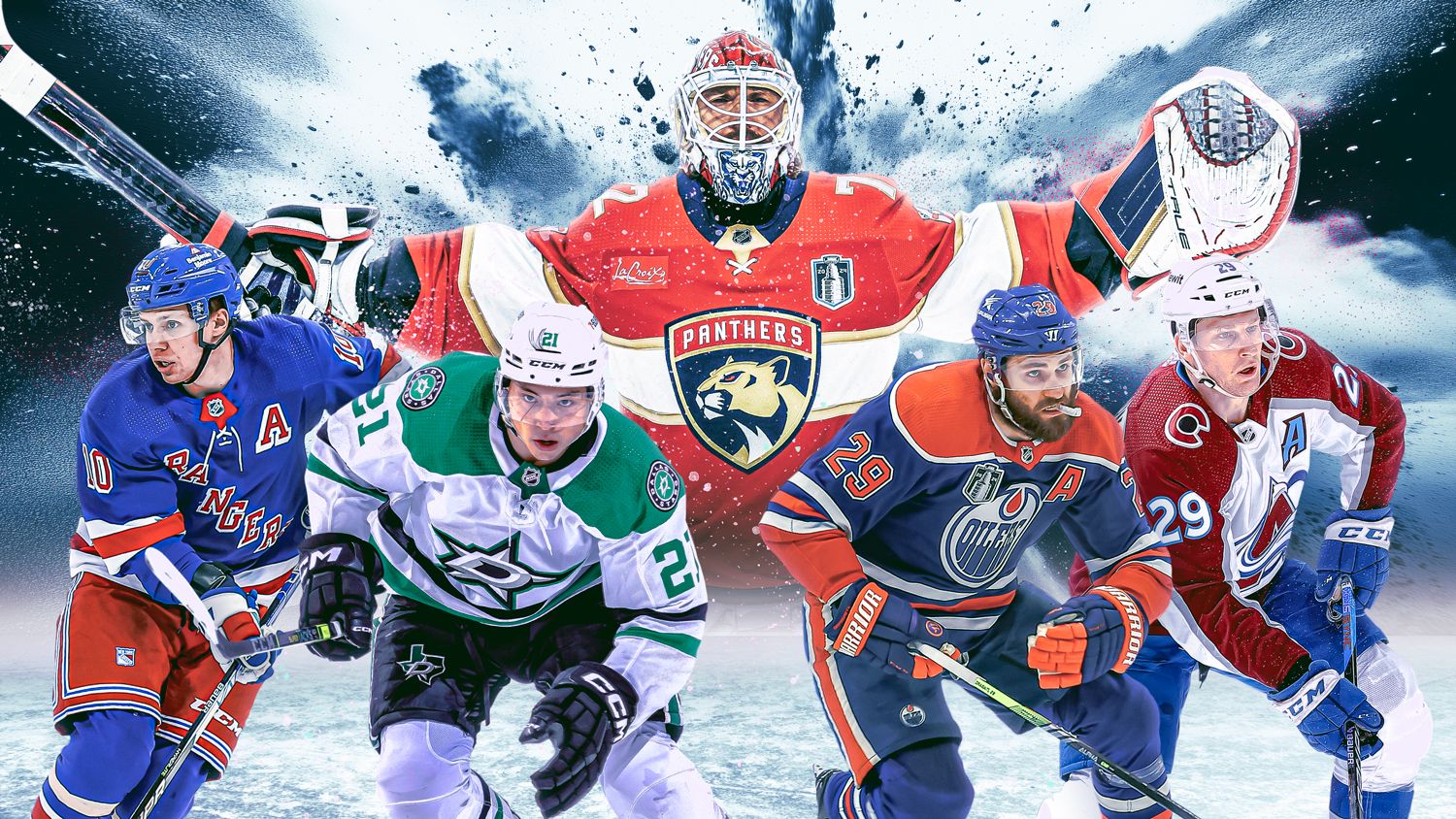Opening night of the 2024-25 NHL season is Tuesday, with a tripleheader of games on ESPN and ESPN+: St. Louis Blues at Seattle Kraken (4:30 p.m. ET), Boston Bruins at Florida Panthers (7 p.m. ET), Chicago Blackhawks at Utah Hockey Club (10 p.m. ET).
We’re here to help get you up to speed with intel on all 32 teams, including the key players who were added or subtracted, best- and worst-case scenarios, X factors and fantasy tips, plus bold predictions.
Our season preview also features the first edition of our Power Rankings, which provide the order in which these teams are presented. The weekly rankings are formulated through votes from ESPN hockey broadcasters, analysts and reporters.
How to watch the NHL on ESPN, ABC, ESPN+ and Hulu
Note: Thanks to PuckPedia for salary and contract data. Advanced stats are from Hockey Reference, Natural Stat Trick and Evolving Hockey. Kristen Shilton profiled the teams in the Eastern Conference, while Ryan S. Clark handled the Western Conference clubs. The fantasy outlook for each team is courtesy of Victoria Matiash and Sean Allen, and bold predictions are courtesy of Greg Wyshynski. Stanley Cup odds are courtesy of ESPN BET.
Jump to a team:
ANA | BOS | BUF | CGY
CAR | CHI | COL | CBJ
DAL | DET | EDM | FLA
LA | MIN | MTL | NSH
NJ | NYI | NYR | OTT
PHI | PIT | SJ | SEA
STL | TB | TOR | UT
VAN | VGK | WSH | WPG


Last season: 49-27-6, 104 points. Lost in the Stanley Cup Final.
Stanley Cup odds: +700
Key players added: F Viktor Arvidsson, D Josh Brown, F Vasily Podkolzin, F Jeff Skinner
Key players lost: D Philip Broberg, F Sam Carrick, G Jack Campbell, D Vincent Desharnais, F Warren Foegele, F Dylan Holloway
Most fascinating player: Evan Bouchard. With Leon Draisaitl signing an eight-year contract, it leaves Bouchard the only homegrown Oiler that’s central to the team’s future who does not have a long-term deal. He’ll be a restricted free agent next summer, as he has one more year left on a contract for a team that’s trying to return to the Stanley Cup Final. Bouchard was a massive part of the success last season. He finished with 82 points in the regular season while scoring 32 points in the playoffs. What makes Bouchard even more vital is that he’s doing it at a time in which teams know the premiums that come with young puck-moving defensemen. Replicating, if not, surpassing what he did in 2023-24 could lead to Bouchard getting rewarded in his next deal, with the reality the Oilers might need to dump cap space to make a long-contract viable.
Best case: Winning the Stanley Cup. Difficult as it may have been for the Oilers to process a Game 7 loss during the offseason, it does reinforce that they are in a championship window and aren’t that far off. If what they added in free agency can provide consistent secondary offense while harnessing what allowed them to reach the Cup Final, it’s possible the Oilers win the title that’s eluded them for more than 30 years.
Worst case: A first-round exit. Going to the Cup Final only to lose in the first round would be a letdown for any franchise. But that could happen to the Oilers based on recent history. Two years ago, the Avs won the Cup only to be bounced in the first round. Last year, the then-defending champion Golden Knights were also knocked out in the first round. Is it possible that a similar fate awaits the Oilers given there’s a bit of a precedent involving Western Conference champions the past few years? Or is this the year they get that 16th playoff win instead?
X factor: Arvidsson and Skinner. Last season, Draisaitl, McDavid and Zach Hyman combined to score 44% of the Oilers’ goals. Add in the fact they moved on from 20-goal scorer Warren Foegele in the offseason, and it creates the need for more secondary scoring options. That’s what made the decision to sign Arvidsson and Skinner alluring. Arvidsson is a five-time 20-goal scorer while Skinner is a 10-time 20-goal scorer, and gives them top-six options.
Fantasy outlook: If Skinner secures a spot on Draisaitl’s wing, as expected, the veteran winger should enjoy a campaign similar to when he put up 35 goals and 47 assists with the Sabres only two years ago. Stuart Skinner likely merits more fantasy love after a successful postseason. Once the top goalies are taken, Edmonton’s No. 1 should be snatched up quickly.
Bold prediction: Evander Kane does the “LTIR special,” and returns for the playoffs
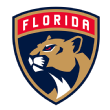
Last season: 52-24-6, 110 points. Won the Stanley Cup.
Stanley Cup odds: +1000
Key players added: F Jesper Boqvist, F Tomas Nosek
Key players lost: F Ryan Lomberg, D Brandon Montour, D Oliver Ekman-Larsson, G Anthony Stolarz
Most fascinating player: Gustav Forsling. Florida knew it had something special in Forsling despite his quiet ascent. The past two seasons have been Forsling at his best as he anchored the Panthers’ blue line through consecutive Stanley Cup Final appearances (and recent victory). Now, will Forsling find a way to improve even further on what was a career season in 2023-24? Florida made several changes to its back end, with Brandon Montour and Oliver Ekman-Larsson in particular gone from the depth chart. It’ll be paramount that Forsling — alongside partner Aaron Ekblad — continue carrying a heavy load.
Best case: Florida doesn’t miss a beat amid its post-championship roster turnover and flies out of the gate into another successful regular season — and long playoff run. The Panthers have a rock-solid base of high-speed, highly skilled players who pick back up where they left off with chemistry to spare. The depth additions Florida made in the offseason — especially Nate Schmidt and Boqvist — carve out solid roles in the system to provide the Panthers’ stars with enough support that no one is overworked or under pressure nightly to steal a win.
Worst case: Cup fatigue sets in early for Florida and puts them behind the Eastern Conference pack. Two years of short summers makes the Panthers slower and less assured as losses begin piling up. Starter Sergei Bobrovsky begins showing his age at 36, and Chris Driedger — who played just two NHL games last season and is replacing Bobrovsky’s former partner Anthony Stolarz — can’t stop the bleeding in net. Florida fails to find a rhythm until midway through the season. Even a late push for the postseason fails and the Panthers flame out of the playoff mix by April.
X factor: Florida’s depth. The Panthers parted ways with a number of players following their Cup win, including Montour, Ekman-Larsson, Stolarz, Vladimir Tarasenko, Nick Cousins and Steven Lorentz. While GM Bill Zito didn’t leave the cupboard completely bare — Boqvist and Nosek have since come on board — that’s still a good deal of change to contend with as they look to repeat as league champions. How will the new faces fit in? Are any of Florida’s prospects — particularly Mackie Samoskevich — ready to take on a full-time role? And will Driedger provide the support Bobrovsky needs? Florida’s depth has been a difference-maker before, and whether it can be again will be a decisive factor in how their season plays out.
Fantasy outlook: With seven players finishing among the top 200 in fantasy points last season, the Stanley Cup champs remain a fantasy force. It’s reasonable to expect more of the same from Matthew Tkachuk, Aleksander Barkov and Sam Reinhart as elite players. There’s upside from Forsling and Ekblad on defense, while Adam Boqvist could be a sleeper if he secures power-play time.
Bold prediction: Regression, thy name is Sam Reinhart.
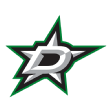
Last season: 52-21-9, 113 points. Lost in the conference finals.
Stanley Cup odds: +1000
Key players added: F Colin Blackwell, D Matt Dumba, G Casey DeSmith, D Ilya Lyubushkin, D Brendan Smith
Key players lost: F Radek Faksa, D Jani Hakanpaa, F Joe Pavelski, F Craig Smith, F Sam Steel, D Ryan Suter, D Chris Tanev, G Scott Wedgewood
Most fascinating player: Wyatt Johnston. One of the biggest reasons why the Stars are in a championship window is their ability to draft and develop homegrown talent. Through just two seasons, Johnston has already emerged as a success story. He went from finishing with 41 points as a rookie to breaking out for 32 goals and 65 points during the 2023-24 campaign. What Johnston does in his third campaign will play a significant role in the Stars’ championship aspirations. More importantly, it will also play a large role in the team’s long-term plans with Johnson entering the final year of his entry-level contract. Figuring out Johnston’s next deal is just one of a few financial considerations facing the Stars as captain Jamie Benn enters the last year of his deal while star goaltender Jake Oettinger will be a restricted free agent at season’s end.
Best case: Winning the Stanley Cup. It really is that straightforward for the Stars — or any team that’s in a championship window. Advancing to the conference finals in consecutive seasons only adds to that belief that the Stars are among the NHL’s elite teams, and one that can pose a serious challenge to win the Cup. The fact they’re doing this in a western landscape that features two of the three most recent Cup winners, the Avs and Golden Knights, along with the team that was a win short of giving the West three straight titles, the Oilers, only enhances the Stars’ path to get there.
Worst case: Getting eliminated before the conference finals. There would be the assumptive disappointment that comes with falling short despite making the conference finals three times in the past five seasons. Another detail that would make a pre-conference finals exit challenging is what it could mean for the Stars’ roster. Key figures such as Matt Duchene, Esa Lindell and Benn are all slated to become UFAs while homegrown talents such as Mavrik Bourque, Johnston and Oettinger are pending RFAs in need of new deals.
X factor: Their offseason defensive additions. Stars coach Peter DeBoer knows what he has with Thomas Harley, Miro Heiskanen and Lindell on the back end. The same holds for Oettinger in net. As for the rest of the Stars’ defensive setup? That’s where it gets interesting. They used the offseason to add Dumba, Lyubushkin and Smith to their blue line while getting a new backup goaltender in DeSmith. There’s also the possibility that at some point in the season they could call up 20-year-old prospect Lian Bichsel, their first-round pick from 2020. It’s a group that will seek to retain the continuity that saw the Stars have one of the strongest defensive identities in the NHL last season.
Fantasy outlook: High-ceiling rookie Logan Stankoven deserves inclusion in deeper fantasy leagues, while young defender Harley merits grabbing once Heiskanen is off the draft board. After a mediocre first few months, Oettinger wrapped up the regular season 10-1-0, with a .941 SV% and a 1.54 GAA.
Bold prediction: Dallas wins the Western Conference.
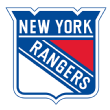
Last season: 55-23-4, 114 points. Lost in the conference finals.
Stanley Cup odds: +1400
Key players added: F Sam Carrick, F Reilly Smith
Key players lost: F Barclay Goodrow, F Alex Wennberg
Most fascinating player: Jacob Trouba. The Rangers’ captain has been under a microscope after playing poorly down the stretch last season — particularly in the playoffs — and weathering a summer filled with trade rumors. The question now is whether a healthy Trouba can be the role player New York needs him to be. At his best, Trouba can be a second-pairing asset who blocks shots and is reliable in his own end while also pitching in on the penalty kill. If that’s what he can deliver, then the Rangers should be pleased. But what if Trouba continues to decline? New York didn’t make any notable additions in the offseason; mostly, what you see is what you get. The Rangers have to hope what they see (and get) from Trouba matches with their expectations for improvement.
Best case: New York finally puts all the pieces together and wins the Cup. The Rangers have run it back with essentially the same roster that earned them a Presidents’ Trophy last season, and this time around they’re better than before — Alexis Lafreniere is a full-blown star, Kaapo Kakko overdelivers, New York’s blue line is cohesive and Igor Shesterkin is otherworldly. The Rangers’ best players show up for them consistently and with a healthy roster intact most of the season, New York is primed for another long spring of playoff success.
Worst case: An early playoff exit. The Rangers didn’t make any needle-moving additions in the offseason — and their depth took a hit with the loss of Wennberg and Goodrow. New York is betting on its group to take strides from last season — but what if that doesn’t happen? While the likes of Lafreniere, Kakko and Filip Chytil should be entering their primes, it remains to be seen if they can provide enough support so that veterans like Artemi Panarin — already dealing with an injury from the preseason — and Chris Kreider aren’t burnt out by April. It would be a nightmare for New York if it wound up too top-heavy and too dependent on star power that can easily fizzle out under the wrong circumstances.
X factor: How will New York handle the pressure? Some call it a privilege to be among a handful of teams most pundits can agree should be excellent in the coming season. The Rangers stuck with their (mainly) intact roster because of what it accomplished in 2023-24. With Peter Laviolette settling into a second year behind the bench and their aforementioned young skaters expected to progress, there are sky-high hopes that this will be the campaign where New York goes all the way to another Stanley Cup Final. We know the Rangers have talent. They have experience. Will they be able to block out the noise, though, and still play with that little chip on their shoulder that’s helped produce positive results in the past?
Fantasy outlook: The Rangers’ identity was their dominant power play last season, making Panarin, Mika Zibanejad, Vincent Trocheck, Kreider and Adam Fox locked-in fantasy superstars. Shesterkin is a top-tier goaltender capable of being a top-10 fantasy play. Watch for reclamation winger Reilly Smith if he succeeds in the top six.
Bold prediction: Shesterkin gets a new deal.

Last season: 50-25-7, 107 points. Lost in the second round.
Stanley Cup odds: +1100
Key players added: D Calvin de Haan, F Parker Kelly, D Jacob MacDonald, D Oliver Kylington
Key players lost: F Andrew Cogliano, F Brandon Duhaime, D Jack Johnson, D Caleb Jones, F Zach Parise, F Yakov Trenin, D Sean Walker
Most fascinating player: Gabriel Landeskog. Back in May, the 31-year-old Avalanche captain was asked when he would return to the lineup. He said sometime between mid-September and April with a laugh, while also acknowledging at the time he was uncertain of his return. The last time Landeskog played was June 26, 2022 when the Avs won the Stanley Cup. Since then, he’s undergone a few knee surgeries that have kept him out of the lineup with the intent he could eventually return. When he does, it would give the Avs another potential scoring option as Landeskog has authored nine seasons of more than 20 goals. Avs coach Jared Bednar told reporters during the preseason that while the Avs are “encouraged by the progress he’s made” that they would not place a timeline on when he could return.
Best case: Landeskog plays more than 50 games and they win the Stanley Cup. Perhaps two of the largest questions facing the Avs are centered around Landeskog’s return and if they can win another title within their current championship window. And even with the questions around Landeskog’s return, there are even more questions about what he would look like after such a lengthy layoff — and how many games he could play. Receiving a version of Landeskog who could play more than 40 games while providing top-six certainty would fill a few needs for the Avalanche.
Worst case: Another playoff exit in the first two rounds. While having Landeskog return to the lineup is a focus, so is winning another Stanley Cup. Losing to the Stars in the second round exposed how the inability to gain consistent secondary and tertiary scoring has remained an issue. It was like that in 2023 when the Avs were knocked out in the first round, a year after they won the Stanley Cup. Their first-round performance in 2024 made it look as if they solved those problems, only to get outscored 16-6 in their four losses to the Stars.
X factor: The supporting cast. Every team in a championship window stresses the need for a strong secondary and tertiary unit. And because of cap space, they’re often forced to undergo an annual reconfiguration. Stalwarts such as Andrew Cogliano and Jack Johnson are gone, while in-season additions such as Brandon Duhaime, Zach Parise and Sean Walker either left in free agency or retired. Restructuring their supporting cast started back in February when backup goaltender Justus Annunen became a full-time NHL player. During the playoffs, the club gave oft-discussed prospect winger Nikolai Kovalenko his debut. It kept going when they used the offseason to add four defensemen who are expected to compete for the bottom pairing and seventh defensemen roles. The decision to re-sign bottom-six winger Joel Kiviranta along with Logan O’Connor‘s return from injury are the sort of options the Avs believe can help them win another Cup.
Fantasy outlook: If not the NHL’s No. 1 defender, Cale Makar is right there, while goalie Alexandar Georgiev benefits his managers by playing often, and well enough, for one of the better teams in the West. Unless Annunen steals more starts than anticipated, Georgiev endures as a top-10 fantasy goaltender.
Bold prediction: Landeskog wins the Masterton Trophy.
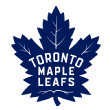
Last season: 46-26-10, 102 points. Lost in the first round.
Stanley Cup odds: +1200
Key players added: D Chris Tanev, D Oliver Ekman-Larsson, G Anthony Stolarz
Key players lost: F Tyler Bertuzzi, D TJ Brodie, G Ilya Samsonov
Most fascinating player: Mitch Marner. The Leafs’ top-line winger doesn’t want to discuss it — the “it” being his contract negotiations. This is the final season on Marner’s deal, and conversations around an extension — or lack of one — have been rampant for months. Marner has chosen to stay mum on the topic publicly, so it’s his on-ice performance that’ll do the talking. The Toronto native isn’t likely to take any hometown discount either, not when Auston Matthews (earning $13.25 million per season) and William Nylander ($11.5 million per year) didn’t take that route. So will the pressure of earning his next salary add to — or detract from — Marner’s game this season? Toronto relies on his contributions as a capable 30-goal scorer, tenacious penalty killer and top power-play option.
Best case: Toronto’s biggest offseason pivots pay off by giving the Leafs a hard-nosed identity to complement their enviable talent. The Leafs immediately respond to new head coach Craig Berube’s no-nonsense approach, and their beefed-up blue line (now with Chris Tanev and freshly minted Cup winner Oliver Ekman-Larsson) provides a stability the team hasn’t had there for years. Nylander starts the season at center and despite failing to thrive there in the past becomes a perfect second-line option between a surging Matthews and John Tavares anchoring the Leafs’ top-ranked units. Joseph Woll proves he’s ready to be a No. 1 starter and Anthony Stolarz is the ideal veteran backup to keep Woll healthy for once. Toronto cruises their way into the playoffs and a long run from there.
Worst case: The Leafs’ nightmare would be having made changes at significant spots in the offseason and seeing those backfire. Berube is the exact opposite to former head coach Sheldon Keefe and the transition from one to the other is rocky. Marner and Nylander struggle early on and Toronto’s defense takes so long to work out the kinks that Woll — under siege every night — can’t provide enough solutions. The Leafs don’t find any consistency despite Berube repeatedly shuffling the deck and frustration inevitable sets in that puts Toronto on its heels late in the season, with the postseason in jeopardy.
X factor: Goaltending. GM Brad Treliving focused on making Toronto’s blue line better. Fair enough. And the Leafs are betting that Woll — who’s coming off a strong regular season and playoffs — is ready to top their goaltending depth chart. What if that’s not the case, though? Woll absolutely has the talent to do it. He also has a fraught history with injuries, which could come back to haunt Toronto. Stolarz is an excellent No. 2. After that, the Leafs have Matt Murray — who didn’t play at all in the NHL last season due to injury. It all feels precarious, like a house of cards that’s one Woll injury away from crashing down.
Fantasy outlook: The Leafs are one of the few teams that could have five skaters reach 200 fantasy points. Matthews, Nylander, Marner, Tavares and Morgan Rielly are the only players assured of early draft consideration. However, there’s value beyond them: Matthew Knies aims for top-line minutes, Tanev and Jake McCabe boost their totals with physical play.
Bold prediction: Marner re-signs with Toronto.

Last season: 47-20-15, 109 points. Lost in the second round.
Stanley Cup odds: +2000
Key players added: F Max Jones, F Elias Lindholm, D Nikita Zadorov, G Joonas Korpisalo
Key players lost: F Jake DeBrusk, F Jesper Boqvist, F Danton Heinen, D Matt Grzelcyk, G Linus Ullmark
Most fascinating player: Lindholm. The Bruins chased after Lindholm long before landing him as a free agent last summer, to the tune of a seven-year, $54.25 million contract. The investment signaled Lindholm as Boston’s newest top-line center candidate, an heir apparent if you will to franchise icon Patrice Bergeron. But Lindholm has already navigated rocky waters in Boston, via an undisclosed injury in training that held him out of most preseason action and severely limited his opportunities to build chemistry in a new system. Will that ultimately affect his performance early this season? He was back at Bruins’ practice by late September, centering Pavel Zacha and David Pastrnak, but even coach Jim Montgomery could admit Lindholm wasn’t “up to speed” as everyone would have liked. Lindholm is one of the league’s brightest centers though and if anyone can catch on quickly, it’ll be him, right?
Best case: Boston reloads (again) to be a top-tier contender in the Atlantic. The Bruins have been written off numerous times in the past few years — for being too old, too slow, too not quite good enough to keep up with the division’s younger squads. Well, Boston has proved its critics wrong in the past and, in a perfect world, does the same again now. Prized signings Lindholm and Zadorov fit seamlessly into the lineup, replacing pieces the Bruins lost and there would be no signs of Boston losing steam down the stretch. Jeremy Swayman‘s contract drama is settled before the season starts and he proves to be a bonafide No. 1. Boston punches their way back to another playoff berth and continue to show why they’ve avoided any rebuild despite significant roster turnover.
Worst case: The Bruins are the odd man out the playoffs as other Atlantic teams move ahead. Boston has benefitted from the likes of Ottawa, Buffalo and Detroit all struggling to gain traction in the division. Even so, every team in the Atlantic earned at least 75 points last season — something no other division could claim. Boston’s veteran group would finally be on the outside looking in without as much firepower and tenacity as the up and comers around them. Swayman, although signed to a new long-term extension, struggles as a full-time starter and Boston falters without the strong goaltending it’s been accustomed to.
X factor: Goaltending. Boston had one of the league’s enviable tandems last season with Ullmark and Swayman. The pairing helped the Bruins exceed expectations in 2023-24. And it was Swayman’s hot hand in the playoffs that took Boston into the second round. Now Ullmark is in Ottawa, and Swayman’s would-be partner Joonas Korpisalo (who came over from the Senators) is the Bruins’ projected opening night starter as Swayman gets back up to speed following a prolonged contract negotiation. There’s no question Swayman will be Boston’s go-to guy in net eventually. Korpisalo has to pull his weight as the No. 1 right now, and that’s not exactly how Boston drew up its goaltending. Korpisalo has been fine in backup roles before, but the Bruins will need something more out of him to ensure they don’t fall behind the competition.
Fantasy outlook: David Pastrnak is a first-round fantasy superstar, while Charlie McAvoy ranks in the top 20 for defenders. If Lindholm builds chemistry with Pastrnak, the rewards could be substantial. Charlie Coyle and Zacha provide low upside but reliable fantasy output.
Bold prediction: This is Jim Montgomery’s final season in Boston.

Last season: 52-23-7, 111 points. Lost in the second round.
Stanley Cup odds: +1400
Key players added: F Jack Roslovic, D Shayne Gostisbehere, D Sean Walker
Key players lost: F Jake Guentzel, F Stefan Noesen, F Teuvo Teravainen, D Brett Pesce, D Brady Skjei
Most fascinating player: Roslovic. Carolina has a need for (more) speed and is counting on Roslovic to provide some this season. The winger has posted up on the Hurricanes’ top line with Sebastian Aho and Seth Jarvis, linemates who can amplify what Roslovic brings on his own. Carolina witnessed those strong qualities during its second-round playoff series against the Rangers last season — Roslovic was new to the Blueshirts after being traded from Columbus at the deadline, but his speed stood out to now-coach Rod Brind’Amour. And it still does. Those expectations are a good thing for Roslovic to embrace. This is something of a redemption year for the 27-year-old after last season’s recording of his lowest goal total (9) since 2018-19 and fewest points (31) since 2019-20. The talent around Roslovic creates a tremendous opportunity for him to thrive and give Carolina a boost offensively.
Best case: Carolina is right back in the mix to get to the Stanley Cup Final again. The Hurricanes went through significant changes on the back end but get surprisingly solid output from an aging Brent Burns and returning Gostisbehere to keep the Hurricanes’ defense on track. Both Carolina goaltenders, Frederik Andersen and Pyotr Kochetkov, remain healthy and emerge as one of the league’s most productive tandems. An offense led by elite performances from a healthy Andrei Svechnikov and Aho puts the Hurricanes ahead of the pack immediately and they lead a race to the playoffs from there.
Worst case: Defense has long been a backbone of Carolina’s success. Losing Skjei and Pesce was always going to sting, and their absence is quickly apparent for the leaky Hurricanes. Injuries wind up coming back to bite Carolina (again) and even its usually potent offensive attack can’t make up for that. The Hurricanes aren’t a good fit for Roslovic, and they feel the losses of Guentzel, Teravainen and Noesen in significant ways. Brind’Amour has to make sweeping changes early that Carolina struggles through while trying to stay in the wild-card mix in the Eastern Conference.
X factor: Goalie health. It’s the elephant in the room for Carolina: Will Andersen and Kotchetkov be available often enough to be a real one-two punch in net? Andersen missed the majority of last season with blood-clotting issues, and the Hurricanes struggled to replace him. Veteran Antti Raanta was passable at best (he has since departed the organization) and Kochetkov tried to help — until he too was sidelined in January by a concussion. So Carolina turned to a waiver wire pickup (Spencer Martin) and Raanta. Not ideal. Andersen and Kochetkov are quality netminders who give the Hurricanes a superb chance to win each night. Protecting their health will be a critical part of Carolina’s success.
Fantasy outlook: Does Andersen have another big season, or does Kochetkov steal enough minutes to be the fantasy choice? More likely, do they limit each other’s potential? Newly signed defenseman Gostisbehere offers sleeper value on the power play if Burns continues his twilight career decline.
Bold prediction: Canes miss the playoffs.

Last season: 47-30-5, 99 points. Lost in the first round.
Stanley Cup odds: +1600
Key players added: F Jonathan Marchessault, D Luke Schenn, D Brady Skjei, F Steven Stamkos, G Scott Wedgewood
Key players lost: F Jaret Anderson-Dolan, G Yaroslav Askarov, D Tyson Barrie, F Anthony Beauvillier, F Jason Zucker
Most fascinating player: Tommy Novak. Why Novak and not Marchessault or Stamkos? Easy. Because it appears that Novak will be the one centering the line with a former Conn Smythe Trophy winner in Marchessault on his right and a future Hall of Famer in Stamkos on his left. Since the Predators decided to retool their roster, they’ve seen Novak emerge from a promising prospect to someone who has firmly established himself as a key part of their future. Novak has shown he can be a top-six center who now has a chance to have the best year of his young career if he ends up anchoring this star-studded line.
Best case: Making a long playoff run. Andrew Brunette’s first season showed the Preds have a roster capable of getting to the postseason. Following that up by having what might have been the NHL’s most aggressive offseason campaign furthers the belief that the Preds can pose a serious challenge once the playoffs arrive. But there’s also a reality that comes with the Preds in that advancing beyond the first round has been an issue. Failing to get past the opening round is why previous GM David Poile thought a retool was necessary, a belief that was carried by his successor, Barry Trotz. While the Predators likely have higher aspirations, they’re also a franchise that has not made it beyond the opening round since the 2017-18 season.
Worst case: Another first-round knockout. The Predators did more than just sign Marchessault and Stamkos to bolster their top six. They added Schenn and Skjei to strengthen a team that already took its defensive identity rather seriously as the season progressed. All those moves are what make the Predators an attractive preseason pick. But they’re trying to make strides in a conference with established powers such as the Avalanche, Golden Knights, Oilers and Stars. Not that another first-round exit torpedoes the Preds’ long-term plans, but it does make things interesting given they have 10 players older than 30.
X factor: What happens in Brunette’s second season? That alone could be the most alluring question facing the Preds. Here’s why: Brunette is known for having an instant impact. He had one with the Panthers when he made them the NHL’s most prolific offense in his lone season as an interim coach. As a Devils assistant, he made them one of the league’s most dangerous groups for his one season. Brunette’s first season with the Predators saw them finish in the top 10 in scoring and 13th in goals allowed. So what happens this season with Brunette getting a second season for a franchise that has gone all-in?
Fantasy outlook: Does Stamkos score another 40 in his new Nashville digs? How does Vegas export Marchessault fare after earning 42 in 2023-24? Perhaps a dip in those impressive totals from both is to be anticipated. Center Novak can’t be disregarded as a promising fantasy performer, should he end up cemented between the two on what amounts to a dynamic second scoring line.
Bold prediction: Roman Josi wins the Norris Trophy.

Last season: 50-23-9, 109 points. Lost in the second round.
Stanley Cup odds: +2000
Key players added: F Jake DeBrusk, D Vincent Desharnais, D Derek Forbert, F Danton Heinen, F Daniel Sprong
Key players lost: D Ian Cole, G Casey DeSmith, F Elias Lindholm, F Vasily Podkolzin, D Nikita Zadorov
Most fascinating player: Brock Boeser. Even with all the times he reached the 20-goal mark, there was a thought that Boeser could score more if he ever stayed healthy. That’s exactly what happened last season when he finished with a career-high 40 goals and 73 points in a career-high 81 games. His performances helped the Canucks win the Pacific, advance to the second round of the playoffs and prove they could have everything needed to be among the conference’s Stanley Cup challengers. Plus: He’s in the final year of his contract.
Best case: Reaching the Western Conference finals. A strong start to the regular season led to them finishing with more than 100 points and winning their division. But they fell one win short of advancing to the conference finals, losing to the eventual Western Conference champion Oilers. Now the Canucks will attempt to use this season to firmly establish themselves as one of the conference’s legitimate Stanley Cup challengers.
Worst case: Failing to capitalize on their newfound progress. Teams such as the Avs, Golden Knights, Oilers and Stars have used the past few seasons to cement their statuses as Western teams in a championship window. As for the Canucks? They’re trying to make the jump from a team that got into the playoffs to one that is a perennial participant and serious title challenger. Getting back to the playoffs would only enhance their reputation, while missing the postseason could create questions about where the Canucks fall in the conference’s landscape.
X factor: Their offseason additions. Possessing a strong defensive identity is how the Canucks were the Pacific Division’s No. 1 seed in the playoffs and won in the first round. A lack of consistent secondary scoring, however, played a part in why they were eliminated in the second. Managing their cap space while finding a way to address their needs was the priority in free agency. The result was signing three forwards who can help with those secondary scoring challenges while the defensemen they added should rebuild their third defensive pairing.
Fantasy outlook: With Thatcher Demko working through a complicated knee injury to start 2024-25, Arturs Silovs is now the guy between the pipes for one of the more competitive teams in the West. A fantasy wild card, the largely untested 23-year-old could either shine or fall flat straight away. If Silovs struggles, new backup Kevin Lankinen could see a lot more early action.
Bold prediction: Elias Pettersson bounces back big.
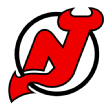
Last season: 38-39-5, 81 points. Missed the playoffs.
Stanley Cup odds: +1000
Key players added: D Brett Pesce, G Jacob Markstrom, F Stefan Noesen, D Brenden Dillon, F Tomas Tatar
Key players lost: F Tomas Nosek, F Alexander Holtz
Most fascinating player: Markstrom. New Jersey has been searching for a stable, No. 1 netminder. Can the 34-year-old Markstrom be that player? Devils GM Tom Fitzgerald believes he can, and swapped a 2025 first-round pick and defenseman Kevin Bahl to Calgary over the summer for Markstrom’s services. Now all the veteran netminder has to do is produce. Markstrom wanted out with the Flames and has a terrific chance to be the backbone for a high-flying Devils team that too often has seen its admirable efforts upfront negated by leaky goaltending. Markstrom is two years removed from being a Vezina Trophy finalist and produced a decent .905 SV% for a comparatively bad Calgary team last season. The question now is what Markstrom can do all season long with the kind of support the Devils should provide.
Best case: The Devils make the playoffs — and make a run. New Jersey hardly resembles a team that missed the playoffs last season, and is rapidly on pace to be an Eastern Conference contender. New coach Sheldon Keefe seamlessly implements a structure that highlights the Devils’ skill and speed with a strong defensive focus. The star skaters perform as expected and New Jersey’s depth players — especially Noesen and Tatar — make immediate impacts to give the team a top-to-bottom attack. For once, the Devils stay mostly healthy on the back end, and good goaltending is the missing link to push New Jersey back into a prominent postseason position.
Worst case: Change, it turns out, doesn’t do any good for the Devils. After a solid start, Keefe’s approach grates on New Jersey’s major players and that early friction sets a negative tone. The top six looks a mess and Keefe goes into panic mode trying to find the right combinations before it’s too late. Newly added Pesce isn’t a difference-making presence on the back end, and the Devils’ seriously feel that loss of Luke Hughes — out seven weeks with a shoulder injury — from the get-go. New Jersey winds up muddling along for the first couple of months and ends up in a hole too large to climb out of by spring.
X factor: How will the defense evolve? The injury to Hughes is a blow, but also creates an opportunity for someone else to step up. New Jersey’s lack of defensive depth was an issue last season and Fitzgerald addressed it by adding Pesce, Dillon and — perhaps less notably at the time — Johnathan Kovacevic from Montreal. The latter is a bruising right-shot defender clocking in at 6-foot-5 and 220 pounds. That’s a good start. What sort of role might Kovacevic be able to create in Hughes’ absence? Likewise, what would a healthy Dougie Hamilton mean for the blue line? Hamilton appeared in just 20 games last season and that had a significant impact on New Jersey’s defensive prospects. Now more than ever, the Devils need Hamilton available and performing like a top-pairing skater.
Fantasy outlook: Jack Hughes, Jesper Bratt, Nico Hischier and Timo Meier will drive the offense, with Hamilton healthy on the blue line. Markstrom provides the reliable goaltending needed for more wins. We’ll need to see if Hughes can carve out a fantasy role alongside Hamilton once he’s fully healed.
Bold prediction: New Jersey wins the Eastern Conference.

Last season: 45-29-8, 98 points. Lost in the first round.
Stanley Cup odds: +1600
Key players added: F Alexander Holtz, F Victor Olofsson, G Ilya Samsonov
Key players lost: F Michael Amadio, F William Carrier, F Paul Cotter, F Anthony Mantha, F Jonathan Marchessault, D Alec Martinez, G Logan Thompson
Most fascinating player: Samsonov. Which version of Samsonov will the Golden Knights see as part of their tandem with Adin Hill? The one who had a .919 save percentage in his first season with the Maple Leafs? Or the one who has posted a sub.-900 save percentage in two of his past three seasons? And regardless of what version the Golden Knights get, how will it fit within the structure of a team seeking a second championship in three seasons?
Best case: Winning a Stanley Cup. Make no mistake about the Golden Knights and how they operate as a franchise. Unless something changes, they’re still a franchise with the primary objective of trying to win as many Stanley Cups as possible by any means necessary. They have 13 players remaining from the team that in 2023 won the first championship in franchise history. And with that comes the expectation that the Golden Knights could still once again win it all.
Worst case: Another first-round exit. Everything has an expiration date, and that includes teams in a championship window. That’s what makes the Golden Knights’ circumstances such a complex dynamic. While they have already won a championship, there’s no guarantee that a franchise built on a win-at-all-costs approach will win another. It’s a lesson the Golden Knights learned last postseason when they saw their 2-0 series lead against the Stars eventually turn into an opening-round departure. And considering the amount of talent they lost in the offseason due to financial reasons, that only adds to the Golden Knights’ win-now mentality.
X factor: The front office. Every season, it’s the same thing. The Golden Knights look like they can’t make any more major moves because they lack the cap space — only to come up with a trade that not only clears the cap but leads to them to a big-name player who adds another dimension to an already strong roster. Could that be the case again this season?
Fantasy outlook: After a brief stint in which he collected four points in six contests, and only one playoff goal, Tomas Hertl is ready to settle in full time as a scoring threat at 5-on-5 and on the top power play. While Noah Hanifin is expected to see valuable minutes with the extra skater, veteran Alex Pietrangelo shines in fantasy competition that rewards blocked shots in addition to scoring categories.
Bold prediction: They win at least one playoff round.

Last season: 45-29-8, 98 points. Lost in the first round.
Stanley Cup odds: +2500
Key players added: F Cam Atkinson, F Zemgus Girgensons, F Jake Guentzel, D Ryan McDonagh
Key players lost: F Anthony Duclair, F Tanner Jeannot, F Steven Stamkos, D Mikhail Sergachev
Most fascinating player: Guentzel. The Lightning effectively moved on from former captain Stamkos in part so they could sign Guentzel to a seven-year, $63 million contract. On its own, that looks like a safe bet — Guentzel is a point-per-game player with three consecutive 30-plus goal seasons. Tampa Bay is rightly expecting this to be the prime of his career and he’ll have every opportunity to flourish. But there’s pressure, too, following a player like Stamkos. The Lightning are looking to replace a veteran performer who was their third-leading scorer last season, racking up 40 goals and 81 points in 79 games. That’s no small void to fill and Tampa Bay is counting on Guentzel to provide that production when he officially hits the ice for his new team this season.
Best case: Tampa Bay continues to master the art of the retool. GM Julien BriseBois went big, going after Guentzel, trading top-pairing defenseman Sergachev to Utah and bringing back defenseman McDonagh. Those moves all prove worthwhile as the Lightning look refreshed and reinvigorated. New captain Victor Hedman seamlessly transitions into a role Stamkos held for over a decade and Tampa Bay responds with strong early chemistry that carries it through a few inevitable bumps as fresh faces work into the lineup. The Lightning build up steam in the regular season and hit the playoff scene on a high note.
Worst case: BriseBois’ risky business doesn’t pay off as planned and the Lightning look lost to start the season. Tampa Bay’s design is too top-heavy and when Guentzel can’t find a groove, the Lightning feel Stamkos’ absence — on the ice and in their dressing room — from the get-go. Goaltender Andrei Vasilevskiy has a slow start to the season and Tampa Bay’s refurbished blue line looks blah despite Hedman’s strong play. The Lightning’s offseason depth additions — including J.J. Moser and Atkinson — don’t quite fit and Tampa Bay never looks like the cohesive bunch BriseBois was seeking to create. The Lightning are run over by the Atlantic’s rising squads and miss the postseason.
X factor: Jon Cooper. It’s not easy being the longest-tenured coach in the sport. Cooper is that elusive leader, though. He guided the Lightning to consecutive Stanley Cup wins in 2020 and 2021, then got them back to the Final in 2022 despite a somewhat tumultuous playoff run that could have derailed a lesser group (and coach). Cooper is the constant for an ever-changing Tampa Bay team that has had to contend with backbreaking salary cap issues year after year. He’ll find a way to at least give Tampa Bay a chance to succeed no matter who is in the lineup. That magic touch is invaluable to the Lightning — now more than ever.
Fantasy outlook: If Vasilevskiy returns to form, the Bolts could have three top-25 fantasy players in Nikita Kucherov, Brayden Point and Vasilevskiy himself. Hedman, who will quarterback the power play, and Guentzel are just outside that range. Beyond them, there is upside in Brandon Hagel and Atkinson, along with reliability from Anthony Cirelli and Nicholas Paul.
Bold prediction: Guentzel scores 40 goals or more.
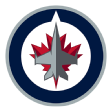
Last season: 52-24-6, 110 points. Lost in the first round.
Stanley Cup odds: +3000
Key players added: F Jaret Anderson-Dolan, G Eric Comrie, D Haydn Fleury, G Kaapo Kahkonen, D Colin Miller, F Mason Shaw
Key players lost: G Laurent Brossoit, D Brenden Dillon, F Sean Monahan, F Tyler Toffoli
Most fascinating player: Nikolaj Ehlers. What’s clear is the seven-time 20-goal scorer is going to get paid next season. Whether it’s the Jets who are paying him? That appears to be the most notable question for the 28-year-old winger, who is entering into the final season of a seven-year contract worth $6 million annually. Any number of scenarios could be presented to the Jets and Ehlers, who has a modified no-trade clause, between now and the end of a season that could see the club reach the playoffs.
Best case: Winning a first-round series. Clearly, advancing beyond the first round is a theme for a number of Western Conference teams. What makes the Jets’ situation unique is the fact that they can win Game 1 only to struggle the rest of the way. In 2023, they scored five goals in a Game 1 against the Golden Knights only to allow more than four goals per game before getting eliminated in five games. Then there’s what happened last year. The Jets outlasted the Avalanche with a 7-6 win in Game 1 only to then allow more than five goals per game and lose the series in five.
Worst case: Either missing the playoffs altogether or another first-round exit. There comes a point in which every franchise must ask difficult questions about its direction. It’s possible the Jets could be heading in there should either of those scenarios play out. The Jets are essentially a perennial playoff team, having made the postseason in six of the past seven campaigns. But they’ve reached the second round only once in that time. The upcoming offseason could see them reshape their roster, using $38.6 million in cap space as they seek to firmly establish themselves as one of the favorites in the West.
X factor: How will the team adapt to Scott Arniel in his first season? Arniel was an assistant under Rick Bowness for two seasons and was hired to take over once the venerable Bowness retired following the Jets’ first-round exit. What philosophies will Arniel use now that he’s in charge? And could those traits that could be parlayed into the Jets not only returning to the playoffs but winning a first-round series?
Fantasy outlook: Kyle Connor is a 40-goal scorer when healthy, while Mark Scheifele is a second-tier fantasy center behind the league’s best. The third member of that Jets’ top line, Gabriel Vilardi, could break out with 70 points if he stays fully fit. Cole Perfetti appears ready to crank it up a productive notch on the power play. The 22-year-old deserves a roster spot in deeper fantasy leagues.
Bold prediction: Connor Hellebuyck leads the U.S. to a 4 Nations Face-Off victory.

Last season: 44-27-11, 99 points. Lost in the first round.
Stanley Cup odds: +3000
Key players added: D Kyle Burroughs, D Joel Edmundson, F Warren Foegele, F Tanner Jeannot, D Caleb Jones, G Darcy Kuemper
Key players lost: F Viktor Arvidsson, F Pierre-Luc Dubois, F Carl Grundstrom, F Blake Lizotte, D Matt Roy
Most fascinating player: Kuemper. Forget whom he was traded for and the episodes that came with “He who shall not be named” during his only season with the club. The Kings are still a franchise that has shuffled through Pheonix Copley, Joonas Korpisalo, Jonathan Quick, Cal Petersen, David Rittich and Cam Talbot since 2022 only to still fall in the first round. Kuemper, who won a Cup in 2022, has inherited a position that could be one of the difference-makers in the Kings getting to the second round.
Best case: They reach the second round. It wasn’t that long ago when the Kings’ rebuild was seen as one that could cement the team as a championship contender. And there’s still the possibility that can happen. But when a franchise has struggled to get out of the first round for three straight seasons and each opening-round exit presents questions that are both old and new in the process? That’s where it gets complicated. This is what makes winning a first-round series so pivotal for the Kings.
Worst case: Losing in the first round or missing the playoffs. A fourth consecutive first-round exit is going to lead to even more questions about what needs to be done going forward. And with teams such as the Blues on the cusp while others such as the Flames, Kraken, Utah and the Wild are also trying to pose a threat? There’s also a possibility the Kings miss the playoffs altogether which would only amplify the pre-existing concerns about the direction of the franchise.
X factor: The games they play without Drew Doughty. Losing Matt Roy in free agency was an already major item considering he led the Kings in short-handed minutes and was second in average ice time. Now the Kings are going to be without Doughty on a month-to-month basis as he recovers from a fractured ankle. Doughty was second in the NHL last season in ice time and also led the Kings in power-play minutes as he quarterbacked a unit that was 11th. The Kings used the offseason to add Kyle Burroughs and Joel Edmundson to help fill the void left by Roy, hoping their additions would help strengthen their overall defensive approach. It’s just that Doughty’s absence gives the Kings another area to address in the early stages of the season.
Fantasy outlook: A healthy Adrian Kempe is good for 35 to 40 goals, while captain Anze Kopitar remains one of the game’s more well-rounded fantasy performers. Cemented in the top six, Quinton Byfield should build on last year’s 20-goal, 35-assist total, and goalie Darcy Kuemper has sleeper potential behind a better defensive system than he had in Washington.
Bold prediction: Quinton Byfield breaks 70 points.

Last season: 41-32-9, 91 points. Missed the playoffs.
Stanley Cup odds: +4000
Key players added: F Vladimir Tarasenko, G Jack Campbell, G Cam Talbot
Key players lost: F David Perron, D Jake Walman, G James Reimer
Most fascinating player: Simon Edvinsson. The Red Wings’ rookie turned a successful 14-game NHL stint last season into heightened expectations for what he can add to the team’s blueline this coming year. Edvinsson skated alongside veteran Jeff Petry to form a solid second pairing for Detroit in the waning weeks of the 2023-24 season. It’s not that Edvinsson had a significant impact on the box score (he netted just one goal and one assist); it’s more that Edvinsson made good decisions in his own end, was hard on the cycle and generally exhibited a poise beyond his 21 years. It will be intriguing to see what Edvinsson can do now that the curtain’s been pulled back on his NHL game.
Best case: Detroit ends the franchise’s longest-ever playoff drought with a return to the postseason field. Losing a tiebreaker to the Washington Capitals kept the Red Wings from playoff competition a year ago but this time around there’s no waiting until the final minute to know they’re in the mix. The Red Wings capitalize on top-tier performances from their best skaters — particularly Dylan Larkin, Alex DeBrincat and Moritz Seider — while Cam Talbot and Ville Husso are the high-caliber tandem Detroit’s been missing in recent seasons. A full-team buy-in to the defensive details finally curbs the Red Wings’ leaky habits of the past and they are primed to excel in the club’s first playoff berth in eight years.
Worst case: The Red Wings have been their own worst enemy before by not prioritizing defensive play. Detroit does that again — to its own peril. Another strong start to the season is derailed by inconsistencies from the blueline on out. The power play — which ranked among the league’s top-10 a year ago — fails to launch and without that boost Detroit can’t keep pace offensively in the Atlantic. Their veteran additions — including Vladimir Tarasenko and Patrick Kane — are a non-factor and Talbot proves to no longer be a No. 1 option. Detroit slowly slides down the standings and lands with another disappointing thud outside the playoff picture.
X factor: Derek Lalonde. The Red Wings finished ninth offensively last season — and 24th defensively. There’s been a clear disconnect for Detroit on how to play a strong two-way team game, and it’s on Lalonde now to pull it out of this group. GM Steve Yzerman believed in Lalonde’s ability when he made the former Tampa Bay assistant a first-time NHL head coach in 2022. Now three seasons into his tenure, it’s time for Lalonde to help the Red Wings turn a corner by adhering to a defense-focused structure. Detroit has shown enough offensive potential that if Lalonde can fix the defensive deficiencies then this could be a significant season for the Red Wings.
Fantasy outlook: Dylan Larkin brings stability, making Alex DeBrincat and Lucas Raymond solid bets for value. On defense, Moritz Seider stands out as a star, Simon Edvinsson has significant fantasy potential and Erik Gustafsson could be a power-play specialist.
Bold prediction: Red Wings hit reverse in Motor City, miss playoffs.
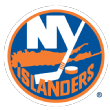
Last season: 39-27-16, 94 points. Lost in the first round.
Stanley Cup odds: +5000
Key players added: F Anthony Duclair
Key players lost: D Sebastian Aho
Most fascinating player: Maxim Tsyplakov. It’s rare for the Islanders to pursue a free agent signing so there must have been something about Tsyplakov that GM Lou Lamoriello couldn’t ignore. Tsyplakov was a coveted commodity coming out of the KHL and while there’s a certain air of the unknown about how he’ll transition to the NHL, Tsyplakov has shown in training camp he’s ready to compete for a roster spot. Linemate Bo Horvat said early on that while the 26-year-old won’t wow you with speed, he’s smart, strategic and a solid playmaker. That’s a good foundation for any forward to build off, and if Tsyplakov can continue to deliver on that it would be a serious boost for an Islanders’ offense that’s consistently lacking depth up front. If Tsyplakov can beat out the competition for an opportunity in the Islanders’ lineup he seems set up for success in the season ahead.
Best case: The Islanders’ offensive struggles are finally a thing of the past as New York’s key weapons — including Horvat, Mathew Barzal and newcomer Anthony Duclair — all find a rhythm early. Ilya Sorokin is not only healthy but recaptures his form from two years ago as a dominant netminder. Speaking of health, Ryan Pulock and Adam Pelech — who both missed about 25 games last season — are stronger than ever anchoring the Islanders’ back end and that sets a tone for the entire defense to follow. Patrick Roy excels in his second season behind the bench as players get more comfortable in his structure. New York is a playoff contender throughout the season and cruises into a postseason slot with little drama.
Worst case: New York’s returns an almost identical roster to last year’s and similar problems inevitably crop up. The Islanders’ 22nd-ranked offense from a season ago doesn’t make vast improvements and continues to average fewer than three goals per game — not enough to keep up with the Metro’s other high-scoring squads. New York’s blueline depth was thinner than expected and can’t survive the inevitable wear and tear that comes when the top four are taking on big minutes. Sorokin’s not 100% following offseason surgery and the fallout from that carries over to the regular season. Without a strong backbone in net the Islanders lose too many tight games and start to slide down the standings.
X factor: Health. The Islanders were run aground last season by key injuries, particularly on the defensive side. New York had a league-worst penalty kill (71.5%) because skaters like Pelech, Pulock and Scott Mayfield (who missed 41 games) were unavailable for long stretches. The Islanders don’t have a stable of prospects (especially on defense) to pull from or veterans waiting in the wings to step in and take on significant roles if they do run into health woes and that could come back to bite them. Right now, the Islanders could benefit from an insurance policy or two, just in case the injury bug creeps quickly back into their equation.
Fantasy outlook: While Noah Dobson stood out, finishing 17th in fantasy points last season, the Islanders return 10 players who finished among the top 250; only the Stars have more. Brock Nelson, Bo Horvat and Mathew Barzal provide reliable value, while Kyle Palmieri, Anders Lee, Alexander Romanov, Ryan Pulock and Jean-Gabriel Pageau often fluctuate in lineups.
Bold prediction: Mathew Barzal sets a new career scoring mark.

Last season: 38-32-12, 88 points. Missed the playoffs.
Stanley Cup odds: +5000
Key players added: F Anthony Beauvillier, F Kevin Hayes, D Sebastian Aho, D Matt Grzelcyk
Key players lost: F Reilly Smith
Most fascinating player: Drew O’Connor. When the Penguins traded Jake Guentzel to Carolina last March there was a hole on the top line winger alongside Sidney Crosby and Bryan Rust — and O’Connor got the opportunity to slot in. He rode shotgun with Crosby all the way through Pittsburgh’s feverish 17-game push to the end of that regular season, a strong audition that ultimately earned him the same spot to start training camp. If that trio developed enough chemistry to be an intriguing go-to option again for coach Mike Sullivan, it’s on O’Connor now to show that he can recreate those previous positive results (including seven goals and 10 points) from the outset. O’Connor complements his linemates with a straightforward attack and a big body to lend some physicality. This also happens to be a contract year for O’Connor, too. Building off his past could pay dividends on the ice and his bank account by year’s end.
Best case: Pittsburgh ends its two-season playoff drought and proves there is still something special about Penguins’ hockey. Crosby is resplendent again as Pittsburgh’s offensive leader, Evgeni Malkin continues to track as a near 30-goal scorer and Erik Karlsson not only stays healthy but shows more flashes of his recent Norris Trophy-winning play. The Penguins establish a strong goalie tandem with Tristan Jarry and Alex Nedeljkovic, where there’s genuine confidence in either one to secure a win every night. Sullivan puts on one of his best coaching jobs in years and Pittsburgh looks closer to being a powerhouse (again) than we’ve seen in years.
Worst case: The Penguins find old problems returning and they can’t come up with quick solutions. Pittsburgh’s goaltending is average and that negates whatever strides they’re able to take offensively. Despite adding younger skaters like Rutger McGroarty there remains an obvious lag in Pittsburgh’s game caused by their overall age. Matt Grzelcyk is a liability on the backend and Kris Letang‘s game suffers. The Penguins make a mid-season coaching change in an effort to change their momentum, but that doesn’t provide enough of a boost to get back on track. The Penguins fall short of the playoffs again and face a long summer of questions about what a potential rebuild will look like.
X factor: The power play. It’s hard to believe that even with the likes of Crosby and Malkin available the Penguins ranked 30th (15.3%) with the extra man last season. For a club that was fighting to the finish for a playoff slot, a putrid power play can be the untimely back breaker. How will they prevent special teams from being a liability again this season? Sullivan has needed a Patrick Hornqvist replacement as Pittsburgh’s net-front man and Michael Bunting should (in theory) be that person — but Bunting didn’t take naturally to the role in his first season. Will Bunting’s sophomore attempt there be any better? Could Rickard Rakell be the right guy? Pittsburgh has to capitalize on its talent to make the power play a real weapon to drive confidence and spark momentum.
Fantasy outlook: Sidney Crosby was the only Penguin in the fantasy top 50 last season, but there’s potential for more. Improved power-play performance could elevate Erik Karlsson back to elite status, and make Bryan Rust and Evgeni Malkin reliable starters. Newcomers Anthony Beauvillier, Kevin Hayes, and Rutger McGroarty offer sleeper potential.
Bold prediction: The power play finishes in the top 10.

Last season: 39-33-10, 87 points. Missed the playoffs.
Stanley Cup odds: +4000
Key players added: F Yakov Trenin
Key players lost: D Alex Goligoski, D Dakota Mermis
Most fascinating player: Marco Rossi. Not that everything about the Wild comes back to the combined $14.743 million buyout cap charges for Zach Parise and Ryan Suter. But it is rather important when it comes back to how the Wild find success while navigating such a financial burden. That’s what made Rossi breaking out for 21 goals and 40 points to emerge as a top-six center while still on his entry-level contract so critical. He gave the goal-starved Wild another option at a team-friendly price. Rossi’s second season has a chance to be beneficial for the Wild in that he could help them challenge for a playoff spot. But it also has a chance to be just as beneficial for Rossi, who is entering the final year of his ELC just as the Parise and Suter buyouts will dip to a combined $1.66 million annual cap hit.
Best case: Return to the playoffs — and make some noise. Staying healthy and scoring consistently will play a major role in the Wild’s bid to challenge for a playoff spot in what’s expected to be a competitive field for the Western Conference wild-card race. Fielding a consistent roster was a challenge at times last season, which was the case last January. In one day, they moved captain Jared Spurgeon and star winger Kirill Kaprizov to injured reserve, while also having Jonas Brodin, Marcus Foligno, Filip Gustavsson and Mats Zuccarello out of the lineup. So what happens if the Wild can find a way to stay healthy and increase scoring? A team that remained in the hunt into April last season will qualify this time around.
Worst case: Taking a step back, and missing the playoffs by a wider margin. Yes, the Wild missed the playoffs and finished 11 points behind the Golden Knights for the final wild-card spot last season. But they actually had more points than the Golden Knights after Nov. 27, the day Hynes was hired to replace Dean Evason. The Wild won the 12th most games in the NHL and were on the cusp of being in the top 10 in fewest goals allowed per game in that span. But if the injury woes continue, and veterans take a step back without young players able to step up to fill the gaps, it could be another postseason on the outside looking in.
X factor: The Wild’s development model. Recently, the Wild have enjoyed an annual tradition of watching one of their homegrown talents break into their lineup and shape their roster. Enter Marat Khusnutdinov. He arrived in the NHL late last season after spending the last three years as a full-time KHL player. His most recent KHL campaign saw him finish with six goals and 20 points in 49 games. Khusnutdinov joined the Wild, and had four points in 16 games. It appears he could start this season as a bottom-six center, with the idea he might not be the only young talent to make their mark. Both Liam Ohgren and Jesper Wallstedt could also feature at some point.
Fantasy outlook: In addition to scoring, second-line center Joel Eriksson Ek throws his body around and wins plenty of faceoffs alongside linemate Matt Boldy, who projects to flirt with a point/game rate. Sophomore defender Brock Faber is tasked with anchoring the club’s top power-play after collecting 47 points in his first full NHL campaign.
Bold prediction: Jesper Wallstedt takes Filip Gustavsson’s job.

Last season: 40-31-11, 88 points. Lost in the first round.
Stanley Cup odds: +7500
Key players added: F Pierre-Luc Dubois, F Andrew Mangiapane, D Jakob Chychrun, D Matt Roy, G Logan Thompson
Key players lost: D Nick Jensen, G Darcy Kuemper
Most fascinating player: Pierre-Luc Dubois. Washington is the third team Dubois has played for in three years. Will this finally be the right fit he’s been looking for? The third overall pick in 2016 was acquired by the Capitals in a blockbuster trade with Los Angeles in June after a one-season effort with the Kings produced just 16 goals and 40 points in 82 games. Despite all of Dubois’ potential, he has yet to show it fully formed at any of the stops he’s made over the last few years. That could all change in Washington. Dubois is set to anchor the Capitals’ second line with Connor McMichael and Tom Wilson, and there’s a perfect opportunity for him to grow along with a burgeoning Washington squad. It’s on Dubois to take advantage and illustrate not only what he’s learned going through some tough seasons but what still makes him a special player.
Best case: Washington makes the playoff field again, and more definitively this time. The Capitals’ young, hungry group tears through the early-season competition with strong performances from Alex Ovechkin, Dylan Strome and Dubois. Washington’s scoring woes are a thing of the past and their special teams explode accordingly. Logan Thompson is a perfect partner for Charlie Lindgren in net. Jakob Chychrun stays relatively healthy and is a solid partner to John Carlson throughout the season. The Capitals’ confidence continues to grow under Spencer Carbery’s leadership as a fresh era for Washington hockey appears to have truly begun taking shape.
Worst case: The Capitals’ experiment working new faces into the lineup backfires when chemistry is hard to come by, and they miss the playoffs. Washington’s top six doesn’t connect — Dubois looks particularly out of place — and Carbery is forced into early-season line juggling that affects the team’s confidence. The Capitals’ defense depth is too thin to withstand early injuries and that puts extra pressure on Lindgren and Thompson to save the day. Ovechkin’s attempts to hit Wayne Gretzky’s goal scoring record slow along with the rest of Washington’s offensive output, and the Capitals look too shaky overall by Thanksgiving to be considered a true contender.
X factor: Is Washington’s new-look defensive corps up to the task in a challenging Metropolitan Division? The Capitals re-tooled their blue line in a big way with offseason acquisitions Roy and Chychrun. Carlson remains one of the league’s preeminent defenseman, and the Capitals are hoping to see more from 24-year-old Rasmus Sandin. Will there be enough for Washington to roll with a strong top six this season — with enough bodies to guard against a downturn like the one caused by Carlson’s past injury? The Capitals ranked 16th in goals against last season and 12th in shots against, and Carbery expressed in April wanting more size and speed from the back end going into this year. We’ll soon see if they have found the right mix.
Fantasy outlook: The Capitals’ retooling around Alex Ovechkin is full of fantasy potential. John Carlson and Jakob Chychrun provide offense from the point, while Matt Roy was a top-100 fantasy player last season. Dylan Strome has found success as Ovechkin’s pivot, and Tom Wilson remains a reliable producer. Pierre-Luc Dubois and Andrew Mangiapane aim to rediscover their past form.
Bold prediction: Alex Ovechkin passes Wayne Gretzky’s goal-scoring mark.

Last season: N/A
Stanley Cup odds: +10000
Key players added: D Ian Cole, F Liam O’Brien, D John Marino, D Mikhail Sergachev, F Kevin Stenlund
Key players lost: D Travis Dermott
Most fascinating player: Mikhail Sergachev. There are several candidates here, but what makes Sergachev the winner is, well, everything about why he’s in Utah in the first place. There was the shock and awe that came with trading for him. There’s the question about how he will perform over a full season after breaking his tibia and fibula last season. There’s the question about what Sergachev could accomplish as a team’s true No. 1 defenseman compared to his situation with the Lightning, where he was behind a generational talent in Victor Hedman. For all the conversations about the promise that comes with Utah’s first season, the argument can be had that nobody embodies that sentiment more than Sergachev.
Best case: Making the playoffs in their first season. Recent history has shown that brand new franchises can get into the postseason pretty quickly. The Golden Knights did it in Year One while the Kraken did it in their second season. There are 14 players on Utah’s roster that were part of last year’s Arizona Coyotes team. Under Utah coach Andre Tourigny, it was a group that went from 57 points in their first season to hitting 70 points in his second. Tourigny’s third year in charge started strong. He guided a roster that was competing for a playoff spot in late January before a 14-game losing streak scuppered those plans. It’s possible that the lessons learned from that last season coupled with their offseason additions could lead to Utah emerging as a serious challenger for one of the two Western Conference wild-card spots.
Worst case: Having a poor start to the season, and missing out on the playoffs. One of the dynamics of this particular Western Conference wild-card race is there could be six or more teams competing for one of those two spots throughout January and February. Utah is expected to be one of those teams, and it’s what makes the idea of getting off to a strong start pivotal. There’s the unwritten rule about that comes with teams being in a playoff spot (or within a few points) when American Thanksgiving arrives. In the case of the UHC, a strong start could prove essential for that reason and for the fact the club has garnered a level of excitement that they want to harness for as long as they can.
X factor: Their defensive personnel. Even with the 14 players that Tourigny coached in Arizona last season, Utah still had needs to address. Defense was among them, and filling those voids is what essentially became the hallmark of Utah’s first offseason. They traded for John Marino on the same day they got Sergachev, before signing two-time Stanley Cup winner Ian Cole in free agency. Those three join a group that already included Sean Durzi, Michael Kesselring and Juuso Valimaki. Durzi and Sergachev could be used as Utah’s top pairing while Marino and Valimaki could be the second pairing, which leaves Cole and Kesselring as Utah’s bottom duo. Regardless of configuration, it’s a group that could play a significant role in Connor Ingram building upon his breakout season in 2023-24 that saw him win a career-high 23 games.
Fantasy outlook: Entering his second season, Logan Cooley is endeavoring to kick it up another notch after scoring 20 goals and 24 assists his rookie year. Ex-Lightning Mikhail Sergachev is the club’s new No. 1 fantasy defenseman, bumping Sean Durzi from that spot and the top power play. Connor Ingram could prove a solid No. 3 netminder in deeper leagues if Utah wins more games than many anticipate.
Bold prediction: We’ll just start calling them the ‘Yetis.’
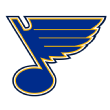
Last season: 43-33-6, 92 points. Missed the playoffs.
Stanley Cup odds: +7500
Key players added: D Philip Broberg, F Radek Faksa, F Dylan Holloway, D Pierre-Olivier Joseph, F Mathieu Joseph, F Alexandre Texier, D Ryan Suter
Key players lost: F Kevin Hayes
Most fascinating player: Jake Neighbours. Was last season just a launching pad for Neighbours? He went from scoring seven goals in 52 games over parts of two seasons to break out for a career-high 27 goals, tied with Pavel Buchnevich for second on the team. Goals were at a premium for the Blues last season, as they scored the eighth-fewest in the NHL. That’s what made Neighbours’ contributions so important, and there’s now an expectation he could play a significant role in getting the Blues back into the playoffs after they missed out by just six points.
Best case: Making the playoffs. Anyone who either knows the Blues’ history or has studied it is aware that this is a franchise that doesn’t really go through playoff droughts. They’ve had just one three-year stretch in which they missed the playoffs. Even though they missed out on the postseason the last two years, their retool appears to have them in a position to challenge for a playoff spot. Those expectations will only intensify if they can continue the progress they made under Drew Bannister, who went 30-19-5 after he was hired to replace Craig Berube.
Worst case: Not supporting their goaltending, and missing out on the postseason again. Even though the Blues found consistency under Bannister, they still struggled in a number of areas. Bannister’s 54 games in charge of the team still saw the Blues face challenges in both zones. Offensively, they had the fifth fewest shots per 60 minutes, the fifth fewest goals per 60 and the third fewest scoring chances per 60. Defensively, they allowed the fourth most high-danger chances per 60, the fifth most shots per 60 and the sixth most scoring chances per 60. And yet, they had the fifth best team save percentage, which also played an instrumental role in why they allowed the 13th fewest goals per game in that time. However, if the goaltending takes a step back under all that duress, they will be in trouble.
X factor: The offer sheet additions. What was an initially subtle offseason suddenly became a lot more noticeable once the Blues signed Philip Broberg and Dylan Holloway to offer sheets, a tactic which ultimately worked as the Oilers declined to match. Broberg’s arrival not only provides the Blues with a young defenseman, but gives them another player who could help fill the void left by Torey Krug, who will miss the season after having ankle surgery. As for Holloway, he’ll challenge for a top-six role on a team in need of more goals.
Fantasy outlook: Jordan Binnington rewarded his managers with a top-10 fantasy total in ESPN leagues this past season. The question is, can he again win more often than not in a fiercely competitive Central Division? Otherwise, the Blues’ top line — Robert Thomas, Jordan Kyrou, and an emerging Jake Neighbours — boast value in diminishing order. No one blocked more shots than defenseman Colton Parayko (218) last season.
Bold prediction: Doug Armstrong wins both offer sheet signings.

Last season: 39-37-6, 84 points. Missed the playoffs.
Stanley Cup odds: +6000
Key players added: F Sam Lafferty, F Beck Malenstyn, F Jason Zucker, G James Reimer
Key players lost: F Zemgus Girgensons, F Victor Olofsson, F Jeff Skinner
Most fascinating player: Bowen Byram. Buffalo acquired Byram in exchange for Casey Mittelstadt because they believed he’d be a “big part” of the team’s future. The 23-year-old certainly has that potential. Byram just hasn’t been able to showcase all of it yet due to injuries and on-ice inconsistencies. Coach Lindy Ruff has had a landslide of young blueliners to sort out before the final lineups are made and there’s no question Byram will continue to be given his opportunity in a prominent role. But can Byram stay healthy and showcase some of that evolution in his game that Buffalo’s looking for? Byram was the No. 4 overall pick (by Colorado in 2019) for a reason. There’s serious two-way talent there to work with.
Best case: Buffalo starts the season strong — despite the 0-2 hiccup in Czechia — and eventually ends a 13-year playoff drought. The Sabres have tried just about everything to halt their losing skid — including bringing back Ruff. That move works to plan as Ruff re-tools Buffalo’s lineup with the right mix to highlight the young core and veteran depth, and the team’s goaltending is consistent throughout the year. Buffalo manages to recapture the offensive spark from that 2022-23 campaign which nearly brought them back to the playoffs, and builds off it with a stronger defensive performance. A more mature Sabres team rises up the Atlantic standings and enters the playoffs with expectations to perform upon arrival.
Worst case: The Sabres didn’t make many additions in the offseason and that comes back to bite them. While anticipating growth from within from the likes of JJ Peterka, Zach Benson and Dylan Cozens, it never comes around and Buffalo never finds its scoring niche. The top-heavy Sabres are worn down early and Ruff’s adjustments don’t take. Despite making moves at the trade deadline it’s too little, too late for the Sabres to gain any traction against more established teams and Buffalo doesn’t qualify for the playoffs again, putting jobs around the organization in jeopardy.
X factor: How will Buffalo’s goaltending situation hold up? Ukko-Pekka Luukkonen has the inside track to be the No. 1 after how well he finished last season. Behind him are up-and-comer Devon Levi and veteran James Reimer. It’s a good amount of depth (in theory) for Buffalo to wield but will that translate into wins? Buffalo allowed fewer than three goals against last season, a testament to both goaltending and their defensive efforts, so they’ll be looking for better from both areas to improve on their previous results. And while Luukkonen’s breakout in 2023-24 was an important step for the Sabres, they won’t want to put excess pressure on him to be a savior each night, either.
Fantasy outlook: Will new fantasy contributors emerge from the young forwards stepping up? JJ Peterka is the best bet, with Jack Quinn also having potential on the second line with Dylan Cozens. Tage Thompson and Alex Tuch are reliable but could improve on last season. Rasmus Dahlin leads the defense, while Bowen Byram and Owen Power could emerge as starters.
Bold prediction: The playoff drought ends.

Last season: 38-33-11, 87 points. Missed the playoffs.
Stanley Cup odds: +6000
Key players added: F Matvei Michkov
Key players lost: F Cam Atkinson
Most fascinating player: Matvei Michkov. No player has created a stir like Michkov in Philadelphia since … well, it’s been awhile. Perhaps it’s no coincidence Michkov — Philadelphia’s seventh overall pick in 2023 — has landed on the scene just in time for the Flyers’ 50th anniversary season of their most recent Stanley Cup championship. Because Michkov is a beacon of hope that the Flyers can, at least, be playoff contenders again soon. The 19-year-old is a confident playmaker already and has kept up in his first NHL training camp. There are bound to be bumps along the way but Michkov is impossible to ignore.
Best case: Philadelphia’s rebuild continues and the team returns to playoff-caliber form. This team was knocking on the door of the playoff field just last season and with enough discipline they can bust right through it. Philadelphia’s top-six benefits from a breakout season from not just Michkov but Morgan Frost, and a healthy Sean Couturier makes all the difference up front. Samuel Ersson takes another step in his development after a solid rookie season and cements his place as Philadelphia’s No. 1 between the pipes. Tortorella’s style continues to mesh well with his players and the building blocks Philadelphia has been stacking for years put them in an optimal position to earn a wild-card playoff spot.
Worst case: The Flyers have been adamant about not rushing through their process and that comes with ongoing growing pains. After an initial surge, Michkov begins to struggle against the tougher NHL competition and Philadelphia’s offensive depth can’t match up on a nightly basis. All the expectations of strides from Frost and Ersson don’t materialize and Philadelphia has to lean too much on its veterans. Special teams suffers and frustration comes naturally from Tortorella trying to get the club back on track.
X factor: Philadelphia’s youth. It’s not just Michkov. Or even Frost. It’s Bobby Brink. And Joel Farabee. And Jett Luchanko. And Ersson. And all the 25-and-unders that the Flyers will be relying on to carry them this season. The success or failure of Philadelphia’s whole campaign can hinge on what they’re able to produce. It’s Tortorella’s job to put them in positions to succeed of course, and then the skaters themselves have to make the most of their opportunities. It’s an exciting prospect to see what those players can do – and an equally nerve-wracking one, too.
Fantasy outlook: Four Flyers finished last season ranked between 80th and 100th in fantasy points. With top rookie Matvei Michkov joining, can any of them break into the fantasy elite? Expect lineup changes to position Michkov for success, which could benefit Travis Konecny, Owen Tippett, Tyson Foerster, Morgan Frost or Sean Couturier, but not all of them.
Bold prediction: Jamie Drysdale stays healthy, breaks out.
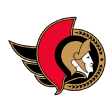
Last season: 37-41-4, 78 points. Missed the playoffs.
Stanley Cup odds: +4000
Key players added: D Nick Jensen, F Michael Amadio, F David Perron, G Linus Ullmark
Key players lost: D Jakob Chychrun, G Joonas Korpisalo
Most fascinating player: Tim Stutzle. The Senators received a star performance from Stutzle in 2022-23, when the forward pocketed 39 goals and 90 points in 78 games. Stutzle failed to reach those heights again last season (although 70 points in 75 games was a fine finish for him) and Ottawa similarly struggled to reach its full potential. Expectations for Stutzle to rebound from a comparatively down year are high going into a new season — and the Senators hopes of getting back into the playoffs could hinge on how high Stutzle (and others, of course) can climb. When Stutzle is at his best he’s capable of being Ottawa’s most dynamic skater and driving their offense forward.
Best case: Ottawa’s core players set the tone with excellent early play and the Senators quickly establish consistency in all three phases of their game. Linus Ullmark’s arrival provides an elite level of goaltending the Senators haven’t had in years and he’s a backbone to the team’s run of regular season success. Ottawa’s offense — ranked ninth last year — vastly improves with a healthy Jake Sanderson and Thomas Chabot leading the way and newcomers Michael Amadio and Nick Jensen providing some veteran support. Travis Green’s newly implemented system brings out the best in Ottawa’s lineup and leads to career seasons for the Senators top skaters, who carry the club back into a postseason spot for the first time since 2018.
Worst case: The Senators stars step up but the lack of secondary scoring options can’t be overcome (again). Efforts to improve defensively produce minor results and without a full-team buy-in to the process, Ottawa begins losing more close games while frustration sets in. The team’s decision not to add more in the offseason can’t be fixed with trade deadline acquisitions and those same top players who were previously driving Ottawa’s success begin to burn out. The Senators fade from relevancy again with 20 games to go and face another long offseason to figure out how to make real progress.
X factor: The evolution of Ottawa’s young core. It’s not just Stutzle. Brady Tkachuk, Drake Batherson, Shane Pinto, Josh Norris, Sanderson — there’s a whole group of talented skaters that will be feeling the heat. These are highly coveted, highly skilled players after all, and it’s their contributions that will determine how far Ottawa goes this season. There’s no excuse now for those top-end forwards to not be playing a committed, 200-foot game. And Green will harp on those details — among other things — to ensure the Senators are getting the most out of their best players. Will those guys tune in and respond the way Ottawa needs them to? Stay tuned.
Fantasy outlook: Brady Tkachuk and Tim Stutzle are fantasy superstars, while Drake Batherson is reliable, but then questions arise. Jake Sanderson is poised to standout on defense, but can he seize the opportunity with Thomas Chabot lurking? Linus Ullmark won’t have the Bruins in front of him, but are the Sens good enough? What are expectations for Josh Norris and Shane Pinto after fewer than 50 games last year?
Bold prediction: Linus Ullmark is one-and-done in Ottawa.

Last season: 34-35-13, 81 points. Missed the playoffs.
Stanley Cup odds: +7500
Key players added: D Josh Mahura, D Brandon Montour, F Chandler Stephenson
Key players lost: F Pierre-Edouard Bellemare, G Chris Driedger, D Brian Dumoulin, D Justin Schultz
Most fascinating player: Matty Beniers. After scoring 57 points, winning the Calder and getting the Kraken to the playoffs as a rookie, there was a belief that Beniers was going to build upon his first season. Instead? He only scored 37 points while the Kraken missed the playoffs which also coincided with Beniers’ ELC coming to an end. Despite that dip in production, the Kraken signed Beniers to a seven-year extension worth $7.14 million annually ahead of a season that could prove pivotal for both parties. Especially as the Kraken have brought in a new coaching staff that could provide solutions to address the offensive woes that challenged Beniers and the Kraken last season.
Best case: Their offseason moves lead to offensive solutions. Much of the narrative around the Kraken last year was centered around how they went from almost scoring at will in the 22-23 season to scoring the second-fewest goals per game a year later. An inability to score was the biggest issue facing a team that constantly relied upon their defensive structure to stay in games. That’s what makes hiring Dan Bylsma as coach and adding Brandon Montour and Chandler Stephenson in free agency so important to a Kraken franchise recovering from a difficult season.
Worst case: Nothing changes from last season. Remember how the Kraken responded from a difficult first season by reaching the playoffs in their second campaign? That’s exactly what they are trying to do in their fourth season after having a difficult third season. If they can have a strong fourth season can that be parlayed into long-term success for a franchise that’s still trying to establish its identity rather than one with an inconsistent persona.
X factor: Their AHL success translating to the NHL. One of the reasons why the Kraken hired Bylsma and later, assistant coach Jessica Campbell, goes back to the continuity they created during their two years with the Coachella Valley Firebirds. What they did at Coachella Valley led to their prospects developing, consistently fielding one of the league’s strongest attacks and advancing to the Calder Cup Final in both of their seasons. The Kraken are banking on the notion they could accomplish the same at the NHL level.
Fantasy outlook: Matty Beniers is due to rebound in the points department after a dud-like sophomore turn following his Calder Trophy-winning run in 2022-23. The 21-year-old should reach 60 points with ease. Brandon Montour takes over running the top power play with his new squad. The Florida export presents as the most promising fantasy performer with a team that otherwise likes to get it done by committee.
Bold prediction: Shane Wright quiets the critics.
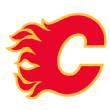
Last season: 38-39-5, 81 points. Missed the playoffs.
Stanley Cup odds: +10000
Key players added: D Jake Bean, G Devin Cooley, F Ryan Lomberg, F Anthony Mantha
Key players lost: F A.J. Greer, D Oliver Kylington, G Jacob Markstrom
Most fascinating player: Dustin Wolf. His performances in the WHL and AHL over the last few years have added to the belief the Flames have their long-term goalie. Wolf will work in tandem with Dan Vladar at first, but is expected to emerge as the Flames’ top option having started 11 of their final 18 games last season. Not only could Wolf use the 2024-25 season to help the Flames challenge for a potential wild-card spot, but it could also lead to him possibly becoming the first goaltender since Steve Mason in 2009 to win the Calder Trophy.
Best case: Establishing an identity. Were they going to have an exodus? Could they convince players to stay? Could they somehow make the playoffs? Where’s the direction of this franchise exactly going? The Flames spent the majority of last season trying to answer those questions before finding an answer — dealing away Elias Lindholm, Sean Monahan, Chris Tanev and Noah Hanifin ahead of the deadline, and Jacob Markstrom this summer. As for this season, it appears the major question facing them is will it be another year where they don’t have enough points for a playoff spot and too many points to win the draft lottery? Or is this the year they make the playoffs after a two-year hiatus?
Worst case: Lengthy losing streaks, and finishing in the mushy middle. Losing six straight games early in the season made it even more difficult for the Flames to get back to .500. A separate four-game skid in December didn’t help their cause either. And just when it appeared as if they were on the verge of making a late push with a five-game winning streak in late February, it was a five-game losing streak in March that was part of a stretch that saw them lose eight of their next nine games that dealt a crippling blow toward their playoff chances. In the worst-case scenario, there are multiple such streaks again — but enough winning otherwise to deny them a good shot at winning the draft lottery.
X factor: Cap space. Being armed with more than $19 million in cap space only adds to the intrigue when it comes to the Flames. Say they are in a position to push for a playoff spot; having that much cap space means they can be one of the more competitive teams should they enter the sweepstakes for a certain player. And if they’re not in the playoff hunt, they could use that space to help broker deals and add more assets for the future.
Fantasy outlook: With Jacob Markstrom settled in New Jersey, rookie Dustin Wolf is set to battle Dan Vladar for the bulk of starts in Calgary’s net. Fantasy managers shouldn’t expect a surplus of victories from either, as the club is in the midst of a minor rebuild. Up front, Nazem Kadri remains an underappreciated performer with point-per-game potential, while winger Yegor Sharangovich could bust through the 60-point mark after coming oh-so-close in his first turn as a Flame.
Bold prediction: The front office stubbornly refuses to tank.

Last season: 30-36-16, 76 points. Missed the playoffs.
Stanley Cup odds: +20000
Key players added: F Patrik Laine
Key players lost: None
Most fascinating player: Patrik Laine. It’s an understatement that the last two seasons have been difficult for Laine. The second overall pick in 2016 has been hampered by injuries, and Laine entered the NHL/NHLPA Player Assistance Program in January. Not long after being cleared by doctors in July, Laine was traded (for the third time in his career) to Montreal. And all eyes will be on the winger to see what he can do with a fresh start — after he recovers from a preseason knee injury that has him out for two to three months. Laine was a point-per-game player for two seasons in Columbus and performed well in Winnipeg before that. The Canadiens acquired him because they believe he can still be a game-changing talent. If Laine were to grab hold of a top-six slot and showcase some of that innate talent again, how much could the Canadiens see their offense improve right away?
Best case: Montreal taps into the full potential of its young core and stays healthy throughout the regular season. Kaiden Guhle comes back strong from injury and is the difference-making asset Montreal’s been lacking to steady its defense on a nightly basis. The Canadiens’ prized defensive prospects — including Lane Hutson and Logan Mailloux — prove they’re ready for NHL jobs and Montreal’s back end performs better than it has in years. The Canadiens continue to evolve their team game and make a serious push for a wild-card playoff spot in early spring.
Worst case: The Canadiens fail to take any steps forward and are ultimately doomed by making too many changes in the offseason. Montreal’s swap of Jordan Harris for Laine looks bad, and doesn’t produce the desired result of giving the Canadiens offense a proper boost. A piecemeal defense doesn’t click when Justin Barron and Arber Xhekaj don’t show more promise out of the gate. Key injuries pile up again and there’s not enough depth to fill the void. Montreal stands pat at the trade deadline instead of trying to push for the postseason and the Canadiens finish at the bottom of the Atlantic again.
X factor: How will the Canadiens defense shake out? Montreal entered training camp with a serious competition for spots between their returning players and incoming prospects. It’s a question of chemistry, though. Whatever pairings coach Martin St. Louis decides to roll out on Opening Night will still feel somewhat precarious in the long term given the number of options available for jobs. And Montreal must improve on that side of the puck. They were sixth worst in goals against last season, and third worst in shots against.
Fantasy outlook: The stars align for big seasons from Nick Suzuki, Cole Caufield and Juraj Slafkovsky, possibly making them one of the league’s top lines. Mike Matheson‘s value could be at risk if Lane Hutson or another prospect emerges, but Kaiden Guhle’s fantasy value remains secure. Don’t overlook Kirby Dach‘s potential after missing almost all of last season.
Bold prediction: Lane Hutson is a Calder Trophy finalist.

Last season: 23-53-6, 52 points. Missed the playoffs.
Stanley Cup odds: +20000
Key players added: F Tyler Bertuzzi, D T.J. Brodie, G Laurent Brossoit, F Ilya Mikheyev, F Patrick Maroon, D Alec Martinez, F Craig Smith, F Teuvo Teravainen
Key players lost: F Colin Blackwell, F Tyler Johnson, F Sam Lafferty, D Jaycob Megna, D Jarred Tinordi, D Nikita Zaitsev
Most fascinating player: Connor Bedard. All the expectations that came with being touted as the NHL’s next generational talent was met with a rookie season that saw him win the Calder Trophy. What Bedard showed throughout his first season was that he was capable of handling the demands that come with being a No. 1 center. He finished tied for first on the team in goals, led the club in assists and points, and logged the most ice time among forwards while finishing third among all Chicago skaters. Seeing what Bedard does in his sophomore effort adds to a larger narrative regarding what steps the Blackhawks take as a whole in 2024-25. Especially when their front office used the offseason to add more veterans with the belief it could see them improve upon from how the team performed last season.
Best case: Winning more than 30 games for the first time in four seasons. From a big-picture standpoint, the Blackhawks added veterans who can help shape the future culture of the club. As for what it all means in the immediate future, these were also moves that are expected to improve a team that struggled to score goals and prevent them. Last season saw the Blackhawks finish with the fewest goals per game while allowing the fourth most goals per game. But with players such as Bedard and Alex Vlasic having another year of experience, coupled with what they did to strengthen their top-nine forward corps along with their defense and goaltending, presents the possibility they could reach 30 wins.
Worst case: Winning fewer than 30 games for a fifth straight season. Promise has been at the heart of Blackhawks’ rebuild. What helps with sustaining that promise is growth. Especially as this has been the most painful stretch of on-ice performance for many years. One of the ways the Blackhawks’ progress could be measured is through certain benchmarks. It appears that winning 30 games could be that metric for the Blackhawks this season. Of note: The last time the Blackhawks had five straight seasons of fewer than 30 wins came during the 1950’s when they played only 70 games per season.
X factor: Goaltending. One of the biggest challenges facing the Blackhawks last season was their goaltending. Or rather, the lack of consistency between the pipes. Arvid Soderblom‘s on five of his 29 starts as a rookie, while posting a .880 save percentage. It’s a bit of a contrast compared to Petr Mrazek, who won 18 games with a .908 save percentage. Adding Brossoit now gives the Blackhawks another proven option in net who has recorded a save percentage greater than .918 in three of his last four seasons. But that also comes with the realization that while Brossoit, who has been in tandems before, could receive the most playing time of his career in 2024-25 after starting the season on IR following a knee procedure in August.
Fantasy outlook: On Connor Bedard’s wing, new Blackhawk Tyler Bertuzzi should enjoy his most productive season since punching out 62 points in 68 games with Detroit back in 2021-22. Bedard himself is expected to take another leap forward after collecting 61 points in 68 contests in his Calder Trophy-winning season. Alec Martinez provides good value in competition that compensates blocked shots.
Bold prediction: Seth Jones is traded.

Last season: 27-50-5, 59 points. Missed the playoffs.
Stanley Cup odds: +30000
Key players added: D Brian Dumoulin, F Robby Fabbri, F Jansen Harkins
Key players lost: F Max Jones, F Jakob Silfverberg
Most fascinating player: Trevor Zegras. There was the lower-body injury in November that led to him missing 20 games. Then there was the broken ankle in January that didn’t see him return to the Ducks’ lineup until late March. And then of course there were the trade rumors. It all amounted to what was a challenging third season for Zegras. His first two seasons saw him emerge as one of the NHL’s future superstars only to see his future — and whether or not that future would see him remain in Anaheim — come into question. Even with a tumultuous season, Zegras finished the regular season with a point in six of his team’s final seven games. Given that the trade rumors are swirling again, he is a main character for Anaheim as 2024-25 begins.
Best case: Finishing with more than 30 wins. Progress is the most important metric in any rebuild. For the Ducks, like the Blackhawks, the notion they could potentially reach the 30-win mark could be a sign of progress. Their most recent season of more than 30 wins came during the 2021-22 campaign. It’s the only season of more than 30 wins over the last five, and hitting that benchmark again would show that they’re on the right path back to contention.
Worst case: A third straight season with fewer than 60 points in the standings. Rebuilds present challenges and that’s what the Ducks have endured the last two seasons. In 2022-23, they finished with 58 points while an injury-riddled 2023-24 campaign played a part in them ending the season with 59 points. Those are the only seasons in franchise history — that didn’t include a lockout or a pandemic-impacted campaign — in which the Ducks have finished below 60 points.
X factor: Defensive improvements. Before Greg Cronin took over last season, the Ducks allowed a league-high 338 goals in the 2022-23 campaign. Cronin’s first season in charge saw that figure dip to 295, which was still the third most in the NHL. They finished with the second worst penalty kill in the league while also being in the top 10 of most high-danger scoring chances allowed per 60 minutes, and the most scoring chances allowed per 60. It will take a full-team approach to get those trends reversed this season.
Fantasy outlook: Rookie Cutter Gauthier boasts 50- to 60-point potential on Leo Carlsson‘s wing, top-line skater Trevor Zegras is looking to bounce back following last year’s injury-riddled campaign, while Frank Vatrano will be hard pressed to score 37 once more. New captain Radko Gudas sports noteworthy value in leagues that reward hits and blocked shots.
Bold prediction: Cam Fowler is traded now, Trevor Zegras later.
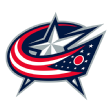
Last season: 27-43-12, 66 points. Missed the playoffs.
Stanley Cup odds: +30000
Key players added: F Sean Monahan, F James van Riemsdyk
Key players lost: D Jake Bean, D Adam Boqvist, F Patrik Laine, F Johnny Gaudreau
Most fascinating player: Adam Fantilli. This is a crucial sophomore season for the third overall pick from 2023. Expectations were high for Fantilli’s rookie campaign, and while he produced solid totals — 12 goals and 27 points in 49 games — it wasn’t exactly a commanding performance, either. Fantilli was a victim of injury (namely a lacerated calf), Columbus’ terrible power play (second worst in the NHL) and the general disarray of a team that struggled across the board. This is a new season though, and Fantilli will have every opportunity to shine. Let’s not forget Fantilli had 30 goals and 65 goals in 36 games for the University of Michigan in his draft year. What can Fantilli do for Columbus’ offense with a locked-in top-six role and consistent linemates? That combination could draw something extra special out of the 19-year-old.
Best case: Columbus needs a boost to start the season and gets it from top to bottom. The Blue Jackets begin to thrive under new coach Dean Evason with a surprising offensive attack led by offseason addition Sean Monahan, a resurgent Boone Jenner and healthy Fantilli. Columbus’ top four on D clicks into place quickly, and finds a solid rhythm in front of a settled-in Elvis Merzlikins. The club’s special teams — once a source of pure frustration — become an asset that helps drive the Blue Jackets all season as they remain in the playoff hunt longer than anyone expected.
Worst case: Another season near the bottom of the Metro. The Blue Jackets’ history of health issues becomes an early problem and the team’s confidence immediately dwindles. Already Columbus is dealing with an injured Boone Jenner and Dmitry Voronkov, and that’s a poor omen of what’s to come. Evason can’t find the right forward mix, and even the addition of experienced depth pieces like van Riemsdyk don’t provide enough options to keep Columbus strong up front. When Merzlikins starts to stumble, the defense follows suit and the Blue Jackets are playing catch up again while other Metropolitan teams pull away. In the end it’s more of the same disappointment for a Blue Jackets team that aimed to turn a corner.
X factor: Special teams. Columbus’ pitiful power play (15.1%) and ineffective penalty kill (76.3%) from last season can’t be another primary storyline for the club this season. The Blue Jackets have talented skaters to fill those roles — van Riemsdyk alone is one of the best net-front power play options Columbus could have signed — and they must turn those two parts of their game into assets. There’s no getting around the things Columbus can’t avoid going into the season, like how difficult it will be bearing the death of Johnny Gaudreau, but taking steps forward where they can as a team will give the Blue Jackets much needed positive momentum, and allow them to make the most of this coming year despite some otherwise brutal circumstances.
Fantasy outlook: While potential scoring stars are scattered throughout the lineup, defenseman Zach Werenski is the primary fantasy focus. Boone Jenner, Kirill Marchenko, Ivan Provorov, Kent Johnson, Adam Fantilli, Sean Monahan and Yegor Chinakhov all have potential to reward this season, but likely only two or three will shine. Fantilli and Marchenko stand out, but drafting anyone aside from Werenski carries risk.
Bold prediction: Adam Fantilli has his breakout year.
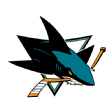
Last season: 19-54-9, 47 points. Missed the playoffs.
Stanley Cup odds: +40000
Key players added: G Yaroslav Askarov, F Macklin Celebrini, D Cody Ceci, F Carl Grundstrom, F Barclay Goodrow, F Will Smith, F Tyler Toffoli, D Jake Walman, F Alexander Wennberg
Key players lost: D Calen Addison, F Alexander Barabanov, G Devin Cooley, D Ty Emberson, F Mike Hoffman, F Kevin Labanc
Most fascinating player: Logan Couture. So much about this particular Sharks’ offseason has centered around adding Macklin Celebrini and Will Smith. After all, they are the two players who have now become the face of a rebuild that could see the Sharks return to prominence. There is, however, something to be said about the Sharks’ past run of contention, and those who remain. A persistent groin injury limited Couture to playing in just six games last season, with all of them coming in January. Couture was in training camp with the team where he has continued rehabbing while telling reporters “there’s no immediate plan to get onto the ice.”
Best case: Celebrini and Smith each finish with more than 20 goals. The children are indeed the Sharks’ future, and this season is about establishing a foundation. Namely, can they both handle the demands of what comes with being a pair of top-six forwards? Celebrini is expected to anchor the top line while Smith, who appears to be their second-line center, could also be used on the wing. For them to both score 20 goals would not only prove that they could carve a place in the NHL, but it would potentially provide optimism that the Sharks are starting to trend upward after a dreadful 2023-24 campaign.
Worst case: They’re worse than they were last season. What ultimately became David Quinn’s final season in charge was obviously a difficult one. In fact, there was one point in which the Sharks struggled so much that they were in contention to finish with the fewest points in the salary cap era. They finished eight points higher than the mark set by the 2019-20 Red Wings, but still faced numerous issues. Hiring a new coach in Ryan Warsofsky, while signing Celebrini and Smith, and adding more veterans has set up the Sharks to potentially show improvement from the team that had 47 points last season.
X factor: The NHL trade deadline. As of now, the Sharks have seven players entering the final year of their contracts before hitting free agency. Rebuilding teams who have those sorts of players are usually the type that have a chance to trade those players in exchange for picks or young players that will help in the future. What makes the Sharks’ situation different than most is they don’t have a salary retention slot, in order to act as a third-party broker to take a portion of a veteran’s salary in a trade. Each team has three retention slots, and the Sharks’ are filled from previous deals involving Brent Burns, Tomas Hertl and Erik Karlsson.
Fantasy outlook: A top target in keeper leagues, Macklin Celebrini boasts a 60-plus-point ceiling in his first NHL season. This year’s first-overall NHL draft selection deserves a roster spot in all leagues of larger size. Same applies to fellow rookie, and second-line center, Will Smith. Defenseman Jake Walman projects as a sleeper due to power-play production.
Bold prediction: Macklin Celebrini wins the Calder Trophy.
